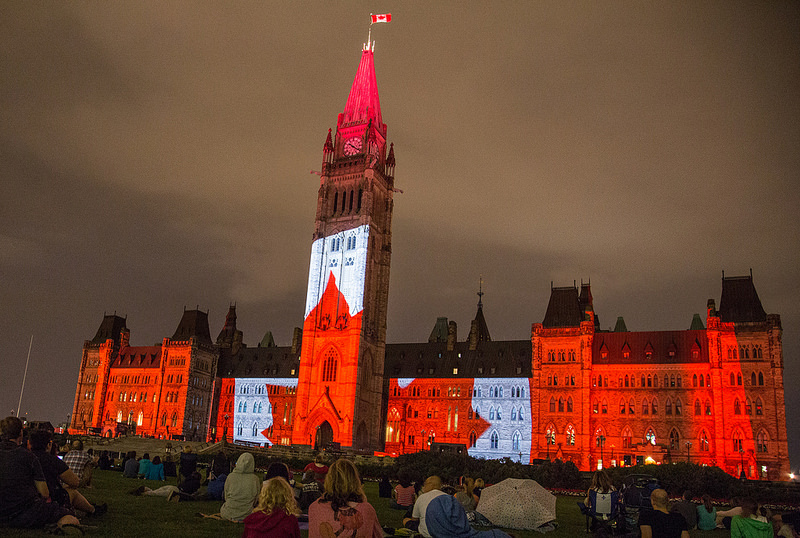62%
Percentage of Canadians who place themselves along the middle of the political spectrum, according to an Environics survey of public opinion.
24%
Proportion of Canadians who self-identify as right-wing — 10 percentage points higher than those who saw themselves on the political right in 2010. They’re more likely to be male, in the top income bracket, and/or immigrant.
14%
Proportion of Canadians who self-identify as left-wing. They’re more likely to be under 30, university-educated, and/or cite no religious affiliation.
37%
Percentage of Canadians who “feel proud of living under the Canadian political system.” The political right and Canadians over 60 are most likely to express pride.
15%
Percentage of Canadians who express strong trust in Prime Minister Stephen Harper; 33 per cent express “clear distrust.” Support comes mainly from the political right, while only 12 per cent in the political middle express strong trust.
55%
Percentage of Canadians who say that they have a lot (16 per cent) or some interest in politics (39 per cent). Those who identify as right or left on the political spectrum are more likely to be interested in politics.
76%
Percentage of Canadians on the political left who support the right to express political dissent — up eight percentage points since 2012. Only 35 per cent of the political right support the right to dissent.
30%
Percentage of Canadians on the political right who participated in civic action in the past year; 28 per cent of Canadians on the political left did so too. According to the Environics survey, there’s less civic engagement on the Prairies.
8%
Percentage of Canadians who participated in demonstrations or protest marches in the past year — up five per cent since 2012. British Columbians, Canadians under 30, the university-educated, and those on the political right and left are most likely to engage in this way.
72%
Percentage of Canadians who say they follow the news on a daily basis. Quebecers and those on the political right are most likely to follow the news.
31%
Percentage of Canadians who share political ideas and information on social media such as Twitter and Facebook — up from 24 per cent in 2012. Younger Canadians, university-educated, and/or those politically aligned on the right or left are most likely to engage in political activity on social media.
61%
Percentage of Canadians who say voting is a duty — compared to 39 per cent of whom say voting is a choice. There’s a clear age divide on this question: Canadians over 60 tend to view voting as a duty; those under 30 tend to think of it as a choice.
74%
Percentage of Canadians who are comfortable with the principle of a coalition government when no party wins a majority — up from 69 per cent in 2012. Support has increased primarily among Conservative and NDP voters, but not among Liberal voters.
48%
Percentage of Canadians who agree “the Canadian government should implement strong policies to reduce income inequality”; only six per cent disagree. Support for active government policies is strongest in Atlantic Canada, Quebec, among low-income Canadians and those on the political left.
Source for all factoids.
The Canadian Centre for Policy Alternative’s Trish Hennessy has long been a fan of Harper Magazine’s one-page list of eye-popping statistics, Harper’s Index. Instead of wishing for a Canadian version to magically appear, she’s created her own index — a monthly listing of numbers about Canada and its place in the world. Hennessy’s Index — A number is never just a number — comes out on the first of each month in rabble.ca.
Photo: Tony Webster/flickr



